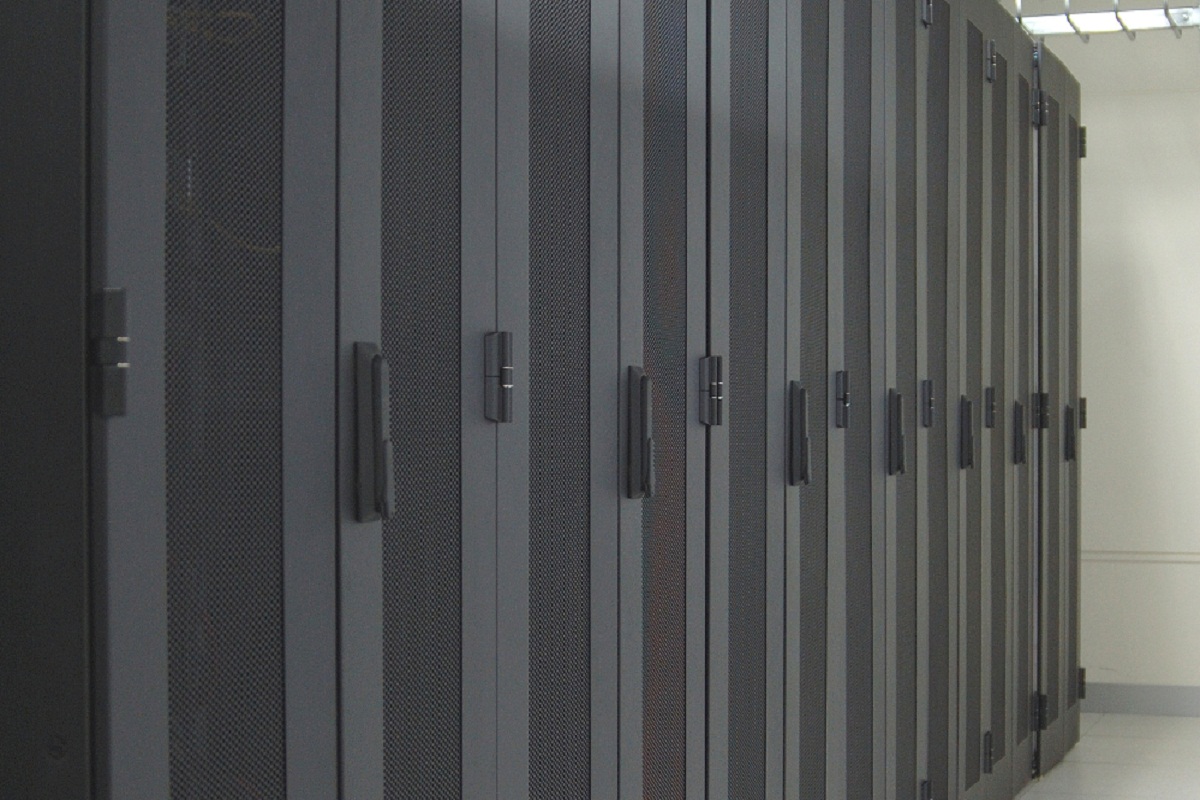Datacentre data crunch
Inside the enterprise: Despite the move to cloud computing, businesses risk running out of datacentre space.

Businesses are running out of space for their data. The explosion in the amount of information being gathered, and stored, by businesses is set to stretch the capacity of data centres over the next few years, despite the growing move towards usings cloud-based services.
And "big data" is to blame, apparently. A report by Oracle cautions that that "many businesses seem to have been caught off guard by the boom in Big Data'", and have failed to prepare, by building adequate datacentre capacity.
Oracle sells datacentre kit these days. Since the company completed its deal to buy Sun Microsystems in 2010, the company has been selling servers and storage, as well as databases and middleware. But the company's Next Generation Data Centre Index is less self-serving than this might suggest.
Many businesses seem to have been caught off guard by the boom in big data.
The study, in its second "cycle", was carried out for Oracle by industry analyst firm Quocirca, and covered close to 1,000 IT managers in 10 regions of Europe and the Middle East (the first "cycle" included the US, dropped this time around in favour of Ireland, and Russia). In the latest round of research, carried out in November, only France and the Middle East did not report an increase in demand for additional datacentre capacity.
The report which goes into considerable detail about the state of datacentre capacity, and planning, across Europe and the Middle East draws two intriguing, and one possibly worrying conclusions.
The intriguing, but perhaps unsurprising, conclusions are that most businesses now use at least some external datacentre capacity (56 per cent, against 40 per cent last Spring), and that sustainability is now back on the agenda. Some 52 per cent of data mangers now see the energy bill for their facilities, and only six per cent of companies do not have a sustainability plan.
Get the ITPro daily newsletter
Sign up today and you will receive a free copy of our Future Focus 2025 report - the leading guidance on AI, cybersecurity and other IT challenges as per 700+ senior executives
The worrying figures are those that suggest firms will run out of datacentre capacity. In the "cycle 1" report, 27 per cent of companies believed they would need more data centre capacity. Now, the figure is 38 per cent. Just eight per cent of companies foresee no need for new capacity at all.
Oracle's conclusion, from this, is that companies are "buying" datacentre capacity now, rather than building for their future needs. That may be the case, but it underplays the importance of the cloud. The albeit anecdotal experience of IT directors is often that, once they have moved data or an IT process to the cloud, they see little reason to bring it back in house. The cost savings and flexibility delivered by a well-managed cloud service are simply too attractive.
The question is rather, if companies are being forced to outsource their data storage needs due to a lack of capacity, they are sourcing those well-managed services that will deliver sustainable cost reductions or simply buying whatever they can to plug the gap now.
-
 Cleo attack victim list grows as Hertz confirms customer data stolen
Cleo attack victim list grows as Hertz confirms customer data stolenNews Hertz has confirmed it suffered a data breach as a result of the Cleo zero-day vulnerability in late 2024, with the car rental giant warning that customer data was stolen.
By Ross Kelly
-
 Lateral moves in tech: Why leaders should support employee mobility
Lateral moves in tech: Why leaders should support employee mobilityIn-depth Encouraging staff to switch roles can have long-term benefits for skills in the tech sector
By Keri Allan
-
 UK cloud infrastructure set for boost amid $5 billion Oracle investment
UK cloud infrastructure set for boost amid $5 billion Oracle investmentNews Oracle is set to invest $5 billion (£3.85 billion) to ramp up support for the UK’s cloud infrastructure capabilities.
By George Fitzmaurice
-
 Stargate project: OpenAI, Oracle pledge support for $500 billion AI infrastructure drive
Stargate project: OpenAI, Oracle pledge support for $500 billion AI infrastructure driveNews US President Donald Trump has unveiled the launch of the $500 billion Stargate Project to expand US AI infrastructure in collaboration with OpenAI, Oracle, and SoftBank.
By Emma Woollacott
-
 Meta wants to join the big tech nuclear club
Meta wants to join the big tech nuclear clubNews Meta has become the latest big tech company to explore the use of nuclear energy to power data centers.
By Nicole Kobie
-
 Data centers will be critical to UK economic growth in the coming decade – but researchers have warned of a ‘data doomsday’ unless energy infrastructure is improved
Data centers will be critical to UK economic growth in the coming decade – but researchers have warned of a ‘data doomsday’ unless energy infrastructure is improvedNews With TechUK calling for improved grid connections and easier access to renewable energy, a new study warns that the world's entire electricity supply may not be enough
By Emma Woollacott
-
 Europe needs more energy and better grids to meet data center power demands in the age of AI
Europe needs more energy and better grids to meet data center power demands in the age of AINews Data center energy demands in Europe are set to triple by the end of the decade, and that means countries will need to boost investment in sustainable power sources and upgrade grid infrastructure.
By Nicole Kobie
-
 Microsoft’s Three Mile Island deal is a big step toward matching data center energy demands, but it's not alone — AWS, Oracle, and now Google are all hot for nuclear power
Microsoft’s Three Mile Island deal is a big step toward matching data center energy demands, but it's not alone — AWS, Oracle, and now Google are all hot for nuclear powerNews The Three Mile Island deal comes after concerns over Microsoft’s carbon emissions surge
By George Fitzmaurice
-
 Oracle wants to power a new gigawatt data center with three small nuclear reactors – and it’s not the only big hyperscaler eyeing nuclear to meet surging AI energy demands
Oracle wants to power a new gigawatt data center with three small nuclear reactors – and it’s not the only big hyperscaler eyeing nuclear to meet surging AI energy demandsNews The firm is pushing the size of its data centers to new heights according to Oracle’s Larry Ellison
By George Fitzmaurice
-
 Google and Oracle data centres hit by issues amidst hottest ever UK day
Google and Oracle data centres hit by issues amidst hottest ever UK dayNews The tech giants were forced to remedy servers as cooling systems strained against 40C outside temperatures
By Rory Bathgate